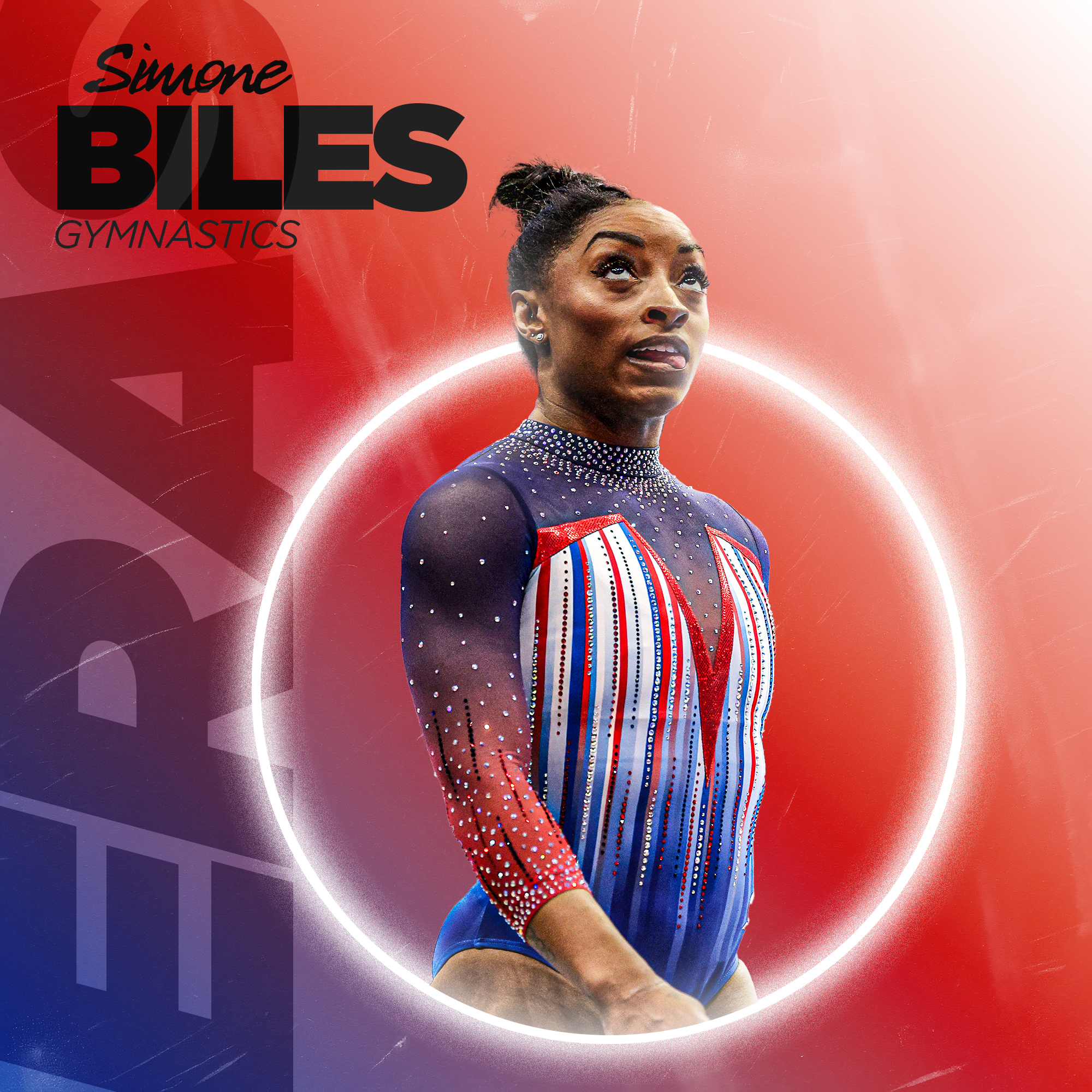Five-ring circus: The 5 greatest American Olympians of the last 25 years
The Olympic Games have consistently served as a global stage for American athletes to etch their names into history.
From track and field to swimming, gymnastics to tennis, these athletes have captured countless medals and built upon a legacy of determination and excellence.
In the final installment of our Olympic Eras series, we acknowledge the accomplishments of the greatest American Olympians this millennium. Their impact has transcended their respective sports and defined what it means to compete at the pinnacle of athletic achievement.
Day 1: International standouts
Day 2: Canadian legends
Day 3: Winter wonders
Day 4: Summer sensations

Signature performance: Serena Williams' most iconic Olympic moment came at the 2012 London Games when she won her first gold medal in singles. Williams delivered a dominant performance throughout the tournament, culminating in a decisive victory over Maria Sharapova in the final. She won 6-0, 6-1, showcasing her power and precision on the grass courts of Wimbledon, where the Olympic tennis events were held.
Why she's here: Williams' four Olympic gold medals, combined with her 23 Grand Slam singles titles, make her not only one of the greatest Olympians but one of the world's most accomplished tennis players - man or woman.
She made her Olympic debut at the 2000 Sydney Games, where she won a gold medal in women's doubles with her sister Venus. This victory marked the beginning of their successful partnership on the Olympic stage.
At the 2008 Beijing Olympics, Williams again competed in both singles and doubles. While she didn't medal in the former, she and Venus captured another gold in the latter. The Williams sisters continued their success at the 2012 London Olympics, where Serena won her first Olympic gold medal in singles and, together with Venus, secured a third gold in doubles.

Signature performance: Phelps' best Olympic race is widely considered to be the 100-meter butterfly final in Beijing. He won by a mere 0.01 seconds, narrowly out-touching Serbia's Milorad Cavic to secure his seventh gold medal of the Games. This victory tied Mark Spitz's record of seven gold medals in a single Olympics, which Phelps broke when he won the 4x100-meter medley relay to claim his eighth gold.
Why he's here: Arguably, Phelps isn't merely the greatest American Olympian, but a serious contender for greatest Olympian of all time. Phelps has 28 medals total; 23 of them gold. Granted, the sport has many events, so swimmers have more opportunity to pad their medal count than other athletes do. However, the sheer dominance Phelps exerted in the pool still put him in a league of his own.
Phelps made his Olympic debut as a 15-year-old in Sydney, competing in the 200-meter butterfly and finishing fifth. It was merely a warm-up for what he would accomplish in later years.
At the Athens Games in 2004, Phelps established the standard that would come to be expected of him, winning six gold medals and two bronze. He continued his success in Beijing, where he won all eight events he entered and recorded world-record times in seven of them.
Phelps returned for the London Games, adding four gold medals and two silvers to his tally. He announced his retirement after those Olympics but returned to the pool in Rio to win five gold medals and one silver in 2016.

Signature performance: Ledecky's memorable 800m freestyle final in Rio will go down as one of her finest Olympic moments. She won the gold medal, shattering her own world record by more than five seconds and finishing the race more than 11 seconds ahead of the silver medalist. This victory completed her sweep of the 200, 400, and 800m freestyle events.
Why she's here: Pick your freestyle distance - anywhere from 200m to 1,500m you'll find a gold medal bearing Ledecky's name. She has seven of them, along with 21 from the world championships.
It all started in London when Ledecky, then 15 years old, won gold in the 800m freestyle and edged out the reigning world champion. That was just the start of her Olympic story, one she added to in Rio where she set new records in the 400m and 800m while earning gold in both distances and the 200m. After adding a relay gold, she finished those Games as the second most decorated athlete aside from Phelps.
She then made history in Tokyo by becoming the most decorated female Olympic swimmer - with 10 total medals - after winning a pair of golds in the 800m and 1500m and silvers in the 400m and relay.
Her 800m time of 8:04.79 in Rio remains the world record and she possesses the 29 fastest times in the distance. No one else has been able to break 8:13, which Ledecky first did in 2013.

Signature performance: In Rio, Biles wowed audiences with her performance in the individual all-around competition. She delivered a series of nearly flawless routines across all four apparatuses - vault, uneven bars, balance beam, and floor exercise - to clinch the gold medal with a substantial margin over the rest of the field.
Why she's here: With a total of 37 medals across both the Olympics and world championships, Biles handily owns the title of greatest gymnast in history.
Biles made her Olympic debut in Rio, where she won four gold medals and one bronze. She captured gold in the all-around, vault, floor exercise, and team events while earning a bronze medal on the balance beam, becoming the first woman to do so since the 1970s. Her performances helped the Americans dominate the gymnastics competition and they also pushed the sport forward; Biles has five skills named after her, two on vault, two on floor, and one on beam.
In Tokyo, Biles faced new challenges. She withdrew from several events to focus on her mental health, drawing widespread attention to the pressures faced by elite athletes. Biles returned to compete in the balance beam final, where she won a bronze medal.

Signature performance: Allyson Felix is best remembered for the three gold medals she won at the London Games.
Why she's here: Felix is track's most decorated Olympian. The American sprinter made her Olympic debut in Beijing, where she won a silver medal in the 200m and gold in the women's 4x400m. Felix won three gold medals in London - she beat out Shelly-Ann Fraser-Pryce in the 200m and nabbed gold in the 4x100m relay and 4x400m relay events.
In Rio, Felix added to her collection with a silver medal in the 400m. She won gold in the 4x100m relay and 4x400m relay, but the Americans were ultimately disqualified from the former after Felix dropped the baton.
In Tokyo, Felix, then 35, earned bronze in the 400m. She then went out on a golden note after helping Team USA finish first in the women's 4x400m relay team.
Jolene Latimer is a features writer at theScore.